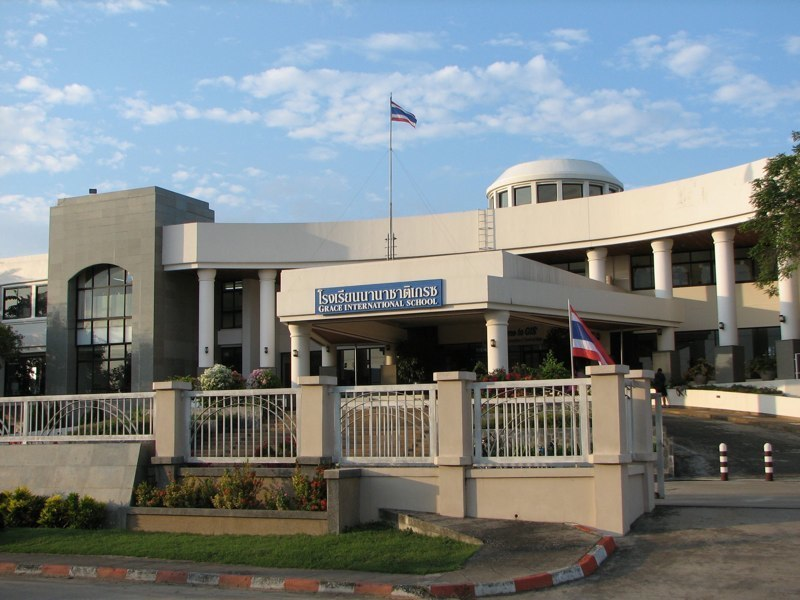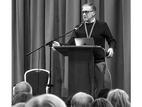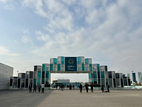Speaking of Thailand, many Chinese people may first think of the comedy movie 'Lost in Thailand' or the recommended features like Kathoey, Tiffany's Show and Phuket's beaches. But for me, the place that intrigues me the most in Thailand is Chiang Mai. The curiosity was rooted in me about three or four years ago when a Chinese brother, who was doing cross-culture mission in Thailand, said, "Chiang Mai is the place with the most mission institutions in the world. It's most worthy to go there if you want to learn cross-cultural mission."
Fortunately, I went to Bangkok this summer and then traveled to Chiang Mai for two days. I was impressed with its particularity, especially in mission training and support.
Reasons why Chiang Mai attracts missionaries
Many local pastors and co-workers told me that the city has good weather, convenient traffic and low price of commodities. Indeed, when it comes talking about Thailand, a large percentage of Chinese may have Bangkok in mind at first. However, as a formal capital of the Kingdom of Lan Na for a long time, Chiang Mai, the second largest city inferior to the current capital, is the center of politics, economy and culture in northern Thailand.
Moreover, it is considered as the hub of Southeast Asia due to its geographic location, not exceeding a three-hour plane ride away from any place in the region.
It has a beautiful natural environment at the average elevation of 300 meters and has famous mountains in the east and west, with the forest area covering 73% of its land.
Being here, I began with a thought---back in the countryside filled with the natural breeze. Meanwhile, there are modern facilities for living, shopping and accommodation. What's more, you suffer from much less economic stress from the cheaper price and housing conditions compared to those in Bangkok.
The country also has an open religious freedom policy that allows any religion to develop here. The reason why it became a critical base for mission training is related to the mission strategy of the evangelicals in the past decades.
In the 20th century, the leading missiologist Dr. Ralph D. Winter put forward the concept of "the unreached" in the first Congress for World Evangelization in Lausanne in 1974, which opened a new era for the global mission. Christian missionary strategist and Partners International CEO Luis Bush at the 1989 Lausanne II Conference in Manila coined the term 10/40 window, a new concept that highlights that the most unreached lie in the region between 10 degrees north and 40 degrees north latitude should be the major focus of the mission. The region includes the majority of North Africa, the Middle East and Asia - which has the most unreached, especially Southeastern Asia where over 50% of the unreached like Muslims, Hindus, and Buddhists live. Therefore, Southeastern Asia has become one of the most important strategic lands for the global mission.
Gradually, many missionaries who come to Asia for cross-cultural mission gather here. In the past, there were missionaries from the United States and the Europe, while South Korea has been ranked as the country that sends the most missionaries according to the world population statistics which was recorded in the revival of the mission in its church in the past ten years.
It is estimated that there are at least several thousand missionaries and about one hundred mission institutions in the city. The official website of Grace International School I visited, stated that there were 2500 missionaries in Chiang Mai 17 years ago when they founded the school and the number grew exponentially each year.
A missionary shares that mission requires skills
In the city, I met some missionaries who are doing their mission. I was received by R, a cross-cultural missionary from the West. He shared that there goes a saying, "Thailand is the grave of missionaries." Many who become relaxed here failed to do their mission owing to the low price and comfortable life in the country, particularly in Chiang Mai. As a result, they forget their mission and seek other ventures.
He stressed that a missionary should not forget his or her calling, living with an alert heart. He also saw many old missionaries stick to their missions in a training for missionaries. Those old co-workers held their faith that they would die in the fields as long as they have breath.
He also mentioned that mission training concerning the Bible, theology and a foreign language should involve the local culture: know and integrate it into the local culture.
For example, he will take the new missionaries to ride elephants and get them to know the actual local culture by visiting places like Chiang Mai. He prefers to guide Chinese missionaries to go to the local churches that speak Chinese, Thai and English. It may be helpful for the Chinese ones to feel the multicultural atmosphere which is different than those in China.
Born and growing up in China, I thought that I knew quite a lot about Asia. But I was impressed with the real Asia with multi cultures, regions and people when I visited Thailand. Even the colors of plants and animals are so different and colorful. Only walk out from one's door and see everything around you to get out the narrow, stubborn and partial thoughts in one's mind and be refreshed.
"I think Muay Thai and Kathoey are two extremes, but they have one thing in common: the latter makes you a womanish man or you exercise hard to be masculine. Basically, they can't live up to 60 years old because the bodies God created are not for that kind of reformation. Your body may suffer from too much pressure. They who risk their lives to change their bodies or train pay so much, resulting to them cutting lifespan so much and seemingly close to self-destruction. These can make money. "
R said that like cultures, these people were actually affected by the evil spirits, concerning spiritual matter. So be careful. He also talked about the time he once suffered from a serious lung disease when doing mission in an Asian country, even thinking that he was about to die there. At that time, he realized deeply that the training should cover sports and even self-defense.
Other repair skills should also be acquired, like repairing a car. He shared that once a missionary encountered a snowstorm and his car had a flat tire. If he couldn't change a tire, he might have died there after insisting for two hours at most.
"These skills are so important!"
His sharing opened a new insight of the mission for me: mission is not merely written on paper if one speaks about the concept or calling. It shows in real life and sacrifice, meanwhile, demanding diligence, true and down-to-earth study, brokenness and refreshment. Otherwise, it engages in idle theorizing and bears no fruit.











